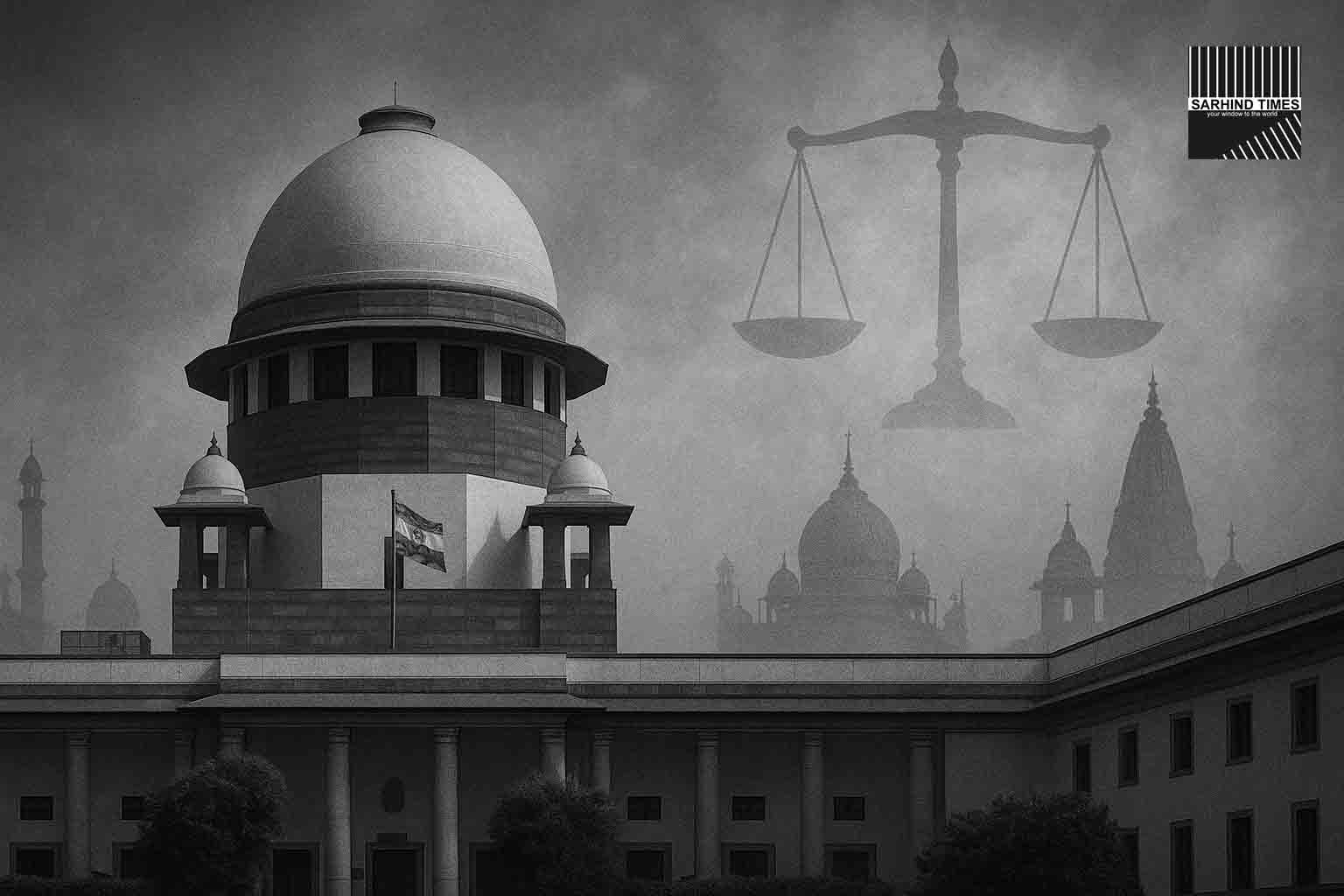16 Sep 2025
A Landmark Intervention
In a decision that could reshape the delicate balance between religion, property rights, and state power, the Supreme Court of India has placed an interim hold on certain controversial provisions of the Waqf (Amendment) Act, 2025. At the heart of the order is a provision that required donors to have practised Islam for at least five years before dedicating property as waqf. Another stayed clause gave district collectors sweeping unilateral authority in adjudicating waqf-related disputes.
The apex court’s move comes after multiple petitions challenged the law’s constitutionality, citing violations of fundamental rights, religious freedoms, and the federal structure. While the stay provides temporary relief to petitioners, it leaves the rest of the amended Act intact, ensuring that the legal and political debate around waqf continues.
Background: Understanding Waqf and the Amendment Act
A waqf is an endowment made by Muslims for religious, educational, or charitable purposes. Historically, waqfs have funded mosques, schools, hospitals, orphanages, and other community institutions across India. The Waqf Act of 1995, with subsequent amendments, established waqf boards in every state to regulate these properties.
The 2025 amendment was introduced by the government with the stated aim of ensuring transparency, better management, and preventing misuse of waqf properties. However, critics argued that some provisions overstepped constitutional boundaries.
Key changes included:
- A five-year requirement of Islamic practice before property donation.
- District collectors empowered with quasi-judicial powers over waqf disputes.
- Stricter rules for registration of waqf properties.
- Enhanced penalties for mismanagement.
The Supreme Court’s Interim Order
The Supreme Court’s bench, while hearing consolidated petitions, chose to stay two provisions that generated the most controversy:
- Five-Year Islamic Practice Rule – This clause was criticized as discriminatory, excluding new converts to Islam and effectively placing religious practice under judicial scrutiny.
- Collector’s Authority – By granting district collectors unilateral powers in waqf disputes, the Act arguably diluted the role of waqf boards and undermined judicial independence.
The bench clarified that the rest of the Act continues to remain in force, including measures on transparency, penalties, and property registration.
Voices from the Community
The decision has triggered mixed reactions.
- Relief and Skepticism: The All India Muslim Personal Law Board (AIMPLB) welcomed the order but called it “partial relief.” Senior clerics emphasized that waqf is a matter of religious freedom and should not be subject to state overreach.
- Government’s Stand: The central government maintained that the amendments were designed to curb corruption, ensure accountability, and protect waqf assets worth billions. Officials expressed confidence that the court would ultimately uphold most of the law.
- Civil Society: Legal scholars and human rights advocates described the ruling as a “pause button,” giving society breathing space to debate sensitive questions at the intersection of religion and governance.
The Constitutional Question
At stake are fundamental constitutional issues:
- Freedom of Religion (Article 25): Does the state have the authority to regulate who can dedicate property as waqf?
- Right to Equality (Article 14): Is the five-year requirement discriminatory against new converts?
- Property Rights: Do expanded state powers infringe upon individual rights to manage and transfer property?
- Separation of Powers: Does granting district collectors quasi-judicial authority blur the line between executive and judiciary?
These questions strike at the core of India’s secular and plural identity.
Historical Context: Waqf in India
Waqfs have existed in India for centuries, with roots in the Delhi Sultanate and Mughal periods. During colonial times, the Waqf Validating Act, 1913 was enacted after years of debate over the legitimacy of charitable endowments. Post-independence, the 1954 and 1995 Acts attempted to modernize waqf administration.
However, allegations of corruption, encroachment, and political interference have plagued waqf boards. Successive governments have struggled to balance community autonomy with accountability.
The Political Dimension
The Waqf Amendment Act, 2025, was passed amid heated debates in Parliament. The ruling coalition argued that stricter rules were necessary to protect waqf assets from exploitation. Opposition parties accused the government of targeting Muslim institutions under the guise of reform.
With the Supreme Court’s intervention, the law has become not just a legal matter but also a political flashpoint. Several regional parties are expected to mobilize around the issue, particularly in states with significant Muslim populations.
Potential Implications
The court’s stay has multiple implications:
- For Donors: Converts to Islam within the past five years may now dedicate properties as waqf, restoring their religious rights.
- For Waqf Boards: Their authority remains intact, preventing district collectors from overriding decisions.
- For Communities: The ruling is likely to be seen as a victory for religious freedom, though uncertainties remain.
- For Governance: It reinforces the role of the judiciary in reviewing legislative overreach.
Expert Analysis
- Justice (Retd.) S. Abdul Rahman remarked:
“The court has drawn a line. The state can regulate administration, but it cannot dictate matters of faith.”
- Dr. Ananya Sen, constitutional scholar:
“This case exemplifies the challenge of balancing transparency with autonomy. Waqf properties are a public trust but also a matter of private faith.”
- Advocate Farhan Khan:
“It is not just about waqf. The precedent set here could apply to other religious trusts, temples, or mutts.”
What Lies Ahead
The Supreme Court has not delivered a final verdict. Further hearings will examine whether the contested provisions are fundamentally unconstitutional. Depending on the outcome:
- The law could be struck down in part or whole.
- Parliament may be forced to revisit and redraft certain sections.
- Broader reforms in religious endowment laws may follow.
Until then, the interim stay ensures a delicate status quo.
Conclusion: A Balancing Act
The Supreme Court’s intervention in the Waqf Amendment Act, 2025, is more than a legal decision — it is a reaffirmation of India’s constitutional ethos. By staying certain provisions, the court has signaled that while transparency and reform are important, they cannot come at the cost of fundamental rights and religious freedoms.
As the case unfolds, it will test India’s ability to strike a balance between accountability, secular governance, and protection of minority rights. The world will be watching how the world’s largest democracy navigates this complex legal and political terrain.
#SupremeCourt #WaqfAct #ReligiousLaw #IndianLaw #MinorityRights #Constitution #Judiciary #LegalUpdate




+ There are no comments
Add yours